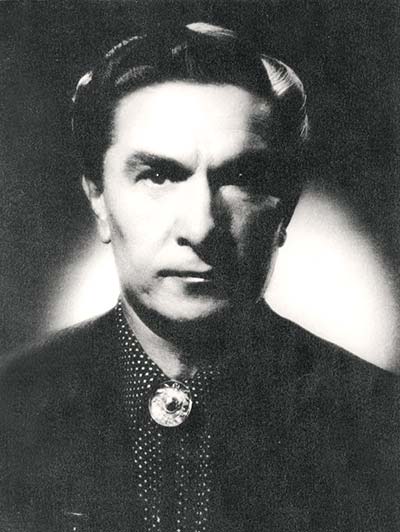Valentīns Bļinovs
1928–2005
Ballet artist, ballet master, choreographer, educator
Born 3 October 1928 in Smolensk Oblast, Russia. In 1947, graduated from the Moscow Ballet School and was invited to work for the Latvian SSR State Opera and Ballet Theatre as a soloist in the ballet troupe (1947–1966).
Was a gifted, brilliant ballet dancer, a performer of dances with temperamental character. His interpreted characters stood out for their unusually brilliant plastic movement and his exceptional mastery of roles.
In addition to his work at the Latvian SSR State Opera and Ballet Theatre, Bļinovs taught classical and character dances for more than half a century at Rīga’s Secondary School of Choreography (1948–2002), forming such future personalities as Uldis Žagats, Alfrēds Spura, Artūrs Ēķis, Māris Liepa and many others.
From 1948 to 1966, Bļinovs was the instructor and répétiteur for the Latvian SSR State Opera and Ballet Theatre ballet company. In preparation for the Decade of Literature and Art in Moscow (1955), the artist was invited to join the newly formed Latvian State Philharmonic Song and Dance Troupe as répétiteur. Several of his new dance productions were staged here, including Obereks, Kujavjaks and Krievu deja (Russian Dance), which were later adopted by other dance groups.
Bļinovs continued to collaborate with the Latvian State Philharmonic’s performing artists, taking on the duties of Philharmonic Ballet Master (1965–1966). As a consultant he has worked for short periods with the Liesma (Flame) Gatve (Avenue), Ritenītis (Little Wheel) and Dancis dance groups, the children’s dance group Horoški, as well as being choreographer and director of the Baltic Military Region dance ensemble (1966–1968).
A Chief choreographer at the 6th Dance Celebration.
Latvian SSR Order of Honour for Performing Arts (1963), awarded the Order’s Medal of Honour (1956), received medals of the Ministry of Culture of the Latvian SSR (1958, 1960) and an Honorary Certificate (1958). State Culture Capital Foundation Stipendiate (1999).
